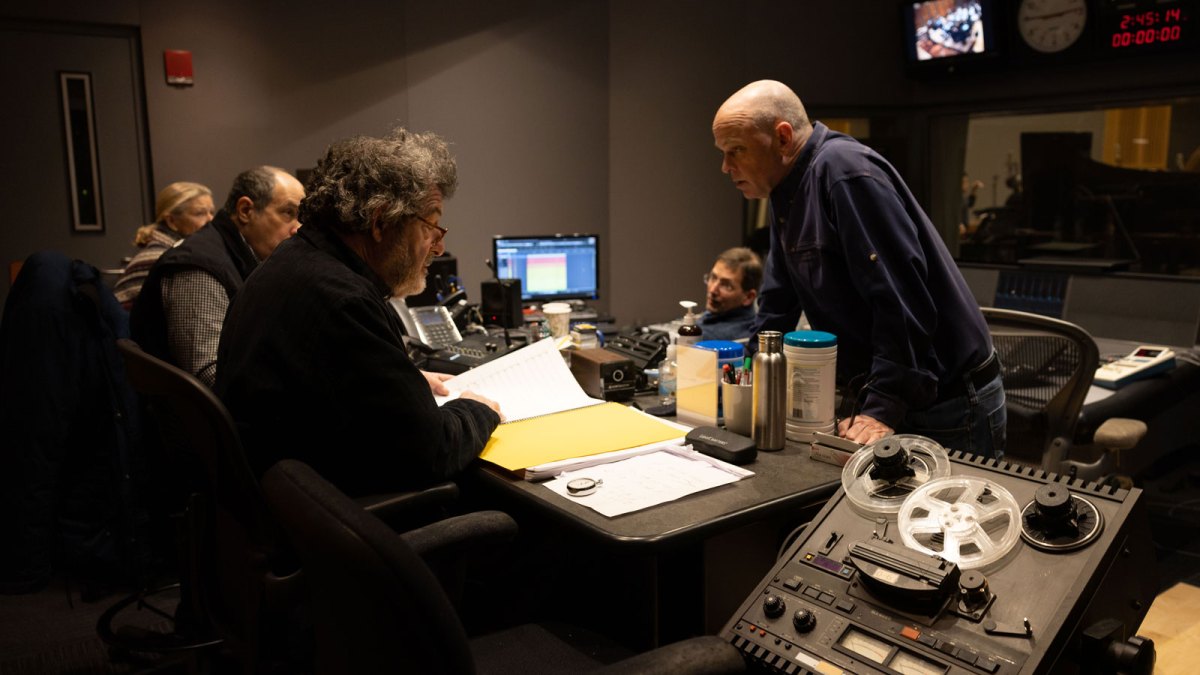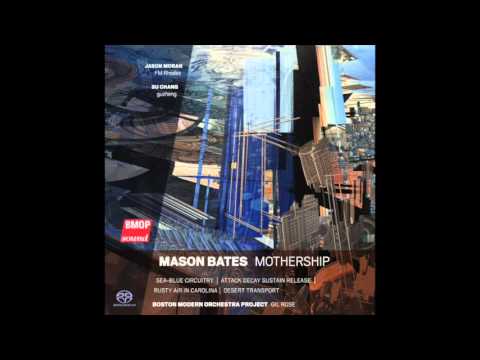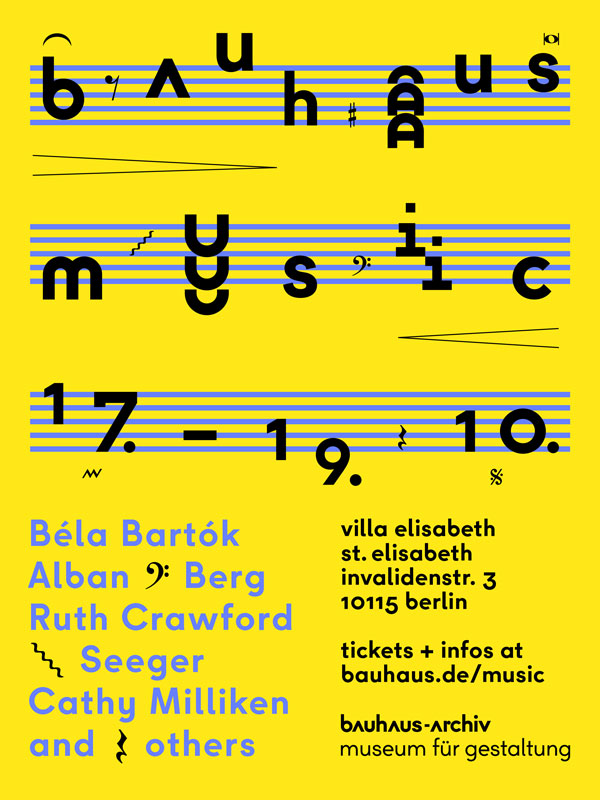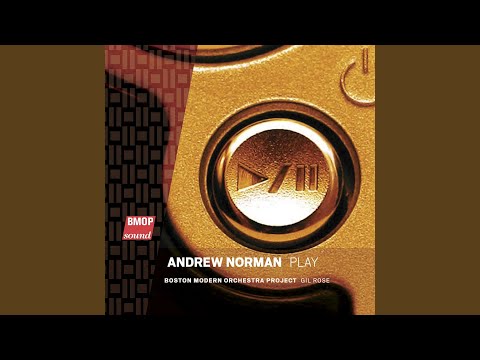On July 12, the label BMOP/sound of the Boston Modern Orchestra Project will release its 100th recording. BMOP—pronounced “BE-mop”—was founded in 1996 by conductor Gil Rose, and has since filled an essential gap in Boston’s classical music scene, performing new and new-ish music between the Boston Symphony Orchestra’s rarified renditions of canonical repertoire, new-music gigs in college auditoriums, and Groupmuse. I spoke with Rose on Zoom about aesthetic through-lines, raising money for “off trend” music, and the “home run swings” he still plans to take.
VAN: How would you describe the aesthetic through-line of the nearly 100 recordings on BMOP/sound?
Gil Rose: Somebody once said that I had an indescribable but unmistakable aesthetic. I think the through-line is a commitment to recording new [works] and what was thought of recently as new. I use a window of 100 years, which makes something ineligible that I would like to do every year. The goal of the label has been to present a variety of music not specific to any one era within those 100 years, but to try to do a cross section of times, styles, and aesthetics—a broad kaleidoscope of music of the last 100 years, clearly with a high focus on American music.
I’d describe the through-line as “American music where pitch and gesture play a really important role.”
I gravitate towards things that have some formal construction. And gesture is important. I also gravitate towards things that are high on craft, that never put concept above craft. That’s the music that pulls my attention, and that I find it most natural to advocate for.
An article on WQXR described Boston Modern Orchestra Project as performing “off trend” music. What does “off trend” mean to you?
It seems to me that trends are driven more and more by non-musical elements: social elements and marketing elements. Yeah, I guess we would be “off trend.” But it doesn’t get you a big audience to say you’re “off trend.”
What are the factors that you’re referring to when you talk about the marketing and social issues that are on trend?
A lot of discussion now is about music as a vehicle for social understanding or social change. And I agree that it is and always has been, but my interest is in musics that are not really dealing with that question—that are dealing with purely musical [questions]. One of my convictions is to play or record music—I don’t know quite how to put this—that is reacting in a continuum. It’s reacting to the music that came before it and influencing the music that will come after it, and it has that as a goal.
I like contemporary composers who are deferential to earlier musics and find inspiration through being part of a continuing line, instead of trying to break a mold. Which is not to say that composers who try to break a mold aren’t doing something valid and fabulous, but it hasn’t been part of my [repertoire]—that’s probably why it’s off trend, I imagine. Because a lot of things that happen and get trendy now are the newest of the new. Sometimes that seems to me to be a marketing ploy: New for new’s sake.
I have a lineage of composers in mind—maybe a lot of them are European—who that applies too, but whom I wouldn’t find in the BMOP/sound catalog. For example, Helmut Lachenmann and Pierre Boulez thought very deeply about the tradition.
That’s true. Well, because [Boston Modern Orchestra Project] is not technically a new music group, but rather an orchestra, composers who are accomplished in the act of writing for orchestra are of great interest to me—above composers who maybe don’t write in a way that’s conducive to orchestras. A lot of music that’s written for orchestras is really new-music ensemble music expanded to the size of an orchestra. But it often doesn’t really work, and it’s hard to make it work. Whatever is being addressed in the musical material might just as well be addressed by 15 players as it would by 85, and it would probably work a lot better for 15 players than it would for 85.
I’ve tried to celebrate and bring to light composers who have the chops to deal with an orchestra as an acoustic entity. My experience has been that that skill is rare and getting rarer. Maybe it’s from lack of practice, but it may also be because composers seem to be composing more visually and less aurally. To compose for an orchestra is to hear in color, and the imagination of thinking in color [makes] one at least have to attempt to be a great orchestrator. And then the technical skill and facility to realize it in a natural way—that’s a through-line for me, when I find composers who have that ability.
I’m very interested in the music, and it records well, too. When we’re mixing, we often talk about how we sometimes have to… how can I put this in a not-insulting way. Sometimes we have to do some of the orchestrating in the mixing room for composers. And then there are other composers that are very easy to mix because they’ve actually mixed it already. They knew how the instruments work, how they sound in an acoustic space, and we don’t have to override that at the mixing console to get the musical gesture across. The musical gesture is baked into the cake. So that’s of interest to me, because as somebody who sees a lot of scores these days: They all look nice, but some of them don’t sound so good.
What happens when someone plops a score down in front of you and says, “I want BMOP to do this.” How do you decide whether it’s going to work well?
Again, I’d make the reference to a new music ensemble, which might have fewer players and also not be operating under the economic structures of an orchestra: certain realities based on the cost of having 85 people in the same room at the same time. One of the things I see immediately is if somebody has any sense of practicality in writing music. In some circles, practicality would be seen as a compromise. I don’t see it as a compromise. I see it as a way to set a group of people free.
Players immediately make an assessment on the music they’re playing as to whether the composer has given them material that makes them sound effective. They really are resistant to music that’s written in a way that doesn’t take into consideration that they play it. So they push back, and often they muscle through it because they’re pros, but they definitely engage at a more committed level when the music has been written for humans to play and to realize effectively: whether it’s beautiful or shocking or whatever. But that it’s effectively written is a big marker for orchestras.
[The musicians] can sense when it’s good and [when it’s] not, too. When you get both of those things, then they are really active participants in it. Sometimes they can recognize that it’s good, but not practical to play; sometimes that it’s practical to play, but not so good. But when the two things come together, then they start to make a sound. That’s what I’m always looking for.
It’s a hard one because a lot of my favorite pieces to listen to are annoying to play. I’m thinking of, say, Friedrich Cerha’s “Spiegel”: the 17th violin has to go Eeek and then wait 80 bars and go Unnh. But it’s really fun to hear.
It’s nice when they’re not mutually exclusive.
How has the Boston new music scene changed since 1996?
I think it’s gotten smaller. When I came to Boston, there were a lot of small new music groups. Some of them are still banging around; I don’t know how active they are anymore. But the biggest change has been this constant guerrilla action of groups coming out and waving a flag, often with a stylistic ax to grind. Sometimes they last and sometimes they fade. The old guard of Boston has gone now—all of the composers and performers that were part of this 1960s, ‘70s old guard.
How would you define your two big projects—BMOP and Odyssey Opera—against their more established counterparts, the Boston Symphony Orchestra and the Boston Lyric Opera?
That’s a trap you just laid for me. Let’s start with the symphonic one. BMOP is in many ways the negative image of the BSO. The BSO is a giant institution with all sorts of money; BMOP is small and feisty but not with any real cash sitting in the bank ever. We’re almost 100% driven by non-economic realities. Maybe: We’re driven by economic realities, like everybody, but our premise is not based on an economic reality. It’s based on an idea about repertoire. Sustainability has never been something I worried about. If my groups went away tomorrow on their own terms, I would be perfectly happy about it. For me, nothing lasts forever.
[For] the larger institutions in the country, and the BSO and maybe BLO fit into this, sustainability keeps coming up as a motive. If sustainability is your motive, there are things you would do to stay alive. Those may not be the things that you got in the business for in the first place, but they take over at a certain point, because you’ve got all these mouths to feed. The decisions start getting driven by the fixed costs of the organization, instead of by the mission. The driving force, for me, has always just been repertoire. By nature, the driving force for large organizations has to be sustainability. And impact: impact in the community, impact in ways that I’m not particularly beholden to.
By impact, do you mean the number of people who come to concerts?
Number, and how they’re part of the fabric of the society and the city. I can be part of the fabric or not. It’s a nice thing to be part of the fabric of the city, but it’s not necessary for us to fulfill our mission.
The latest from VAN, delivered straight to your inbox
I assume you have to go to donors anyway at times…
“At times”? Like, at all times. Not just “at times.” Constantly, non-stop.
How do you go about convincing them to give their money to contemporary or new music that’s “off trend”?
It’s not easy. Especially the “off trend” part, more than the new music part. Difficulty is inherent in the off trend part. It’s not the bright and shiny thing that everybody’s talking about. I think you find your tribe, supporters who understand what you’re up to and value it. The new donors are more trouble. It’s different than it used to be, especially with institutional support. When I started, foundations were run by people who understood and valued the arts. Now the big foundations are run by a professional class of foundation administrators. They understand a lot of other things that are of value. But music, and especially a niche music market—it doesn’t resonate with them.
The nonprofit world seems very concerned with measurable impact, all the stuff about how art makes us better people…
Yeah, it’s also the whole thing like if you play your kid Mozart, he’ll be a good mathematician. But what about if you play Mozart, and he’ll just be a good human being? It’s cooked into American culture that investment in things of aesthetic value has to have a commercial upside. If they have a commercial upside, they’re seen as valuable. If they just have an aesthetic value, they’re not that popular.
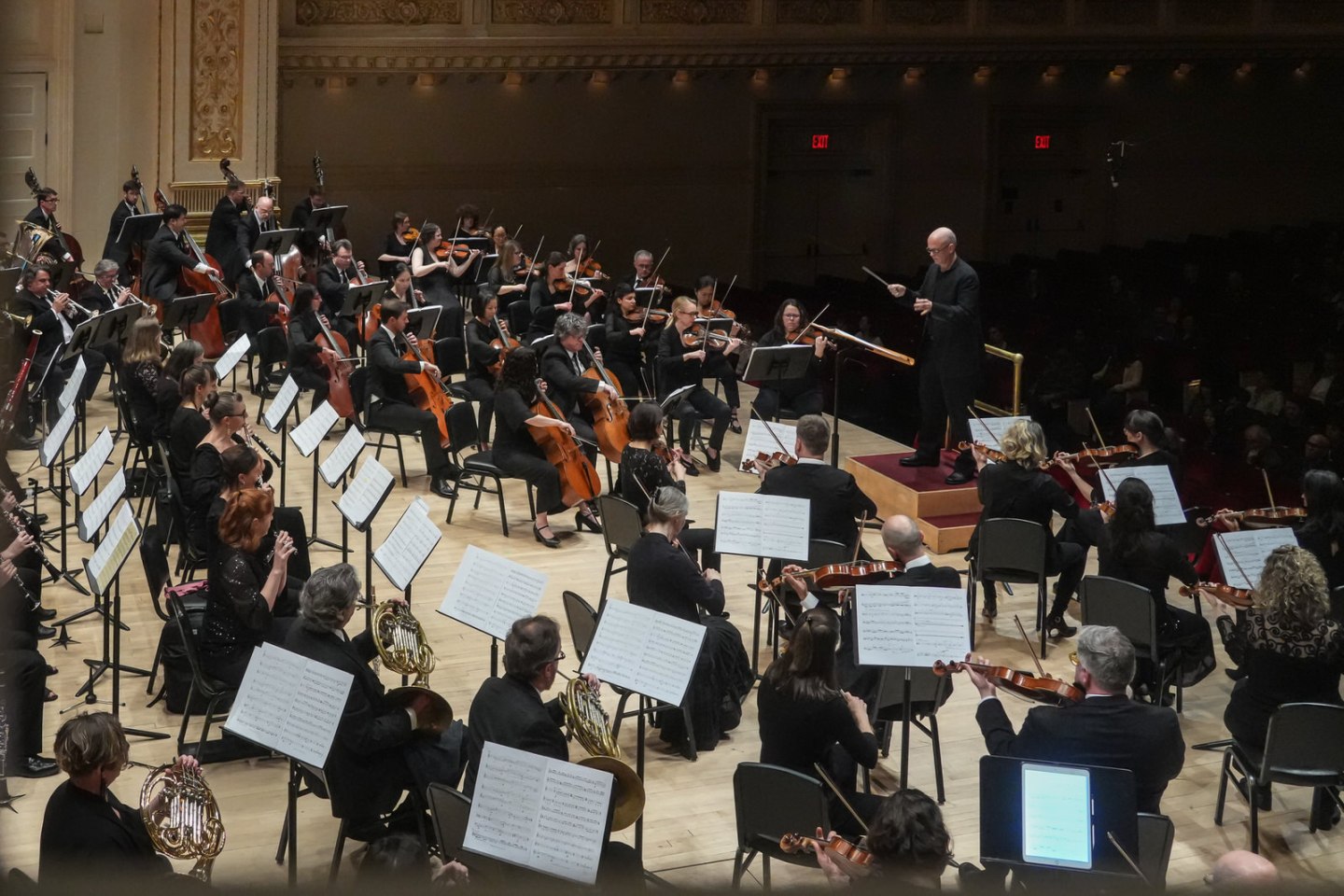
What are you looking forward to recording in the next 100 BMOP/sound CDs?
I keep what I call my bucket list: there must be 50 things on it that I think are of interest. If I actually had to choose between them, I’d probably whittle it down to 20 or 25 things. A lot of them are mid-20th century works. They have to be of interest to me musically, under the terms we discussed at the beginning, but I also get really motivated when we could record something that otherwise will never be recorded. And that seems to me to qualify a lot of music. There’s so much music, you can’t imagine. Composers just keep writing. A lot of the names that mean something to me—being an old guy who was around when the last of this Old Boston tradition was around—there are a lot of names that need to be part of the fabric, of the idea, of what American music is. They’re becoming completely unknown. That’s a mission for me; that’s why I get up in the morning and do this.
Like who?
One of my pet projects that I haven’t even started would be to record all the piano concertos of John La Montaine. Another name from an earlier time is Bernard Rogers, who was the principal teacher at Eastman before Howard Hanson. There are a couple other big David Del Tredici pieces I’d like to do. Some of them are bigger projects, and some of them are smaller ones, but I’m gravitating towards bigger projects now: fewer, bigger projects. There are a couple home run swings I want to try to take. ¶
Subscribers keep VAN running!
VAN is proud to be an independent classical music magazine thanks to our subscribers. For just over 10 cents a day, you can enjoy unlimited access to over 875 articles in our archives—and get new ones delivered straight to your inbox each week.
Not ready to commit to a full year?
You can test-drive VAN for one month for the price of a coffee.

